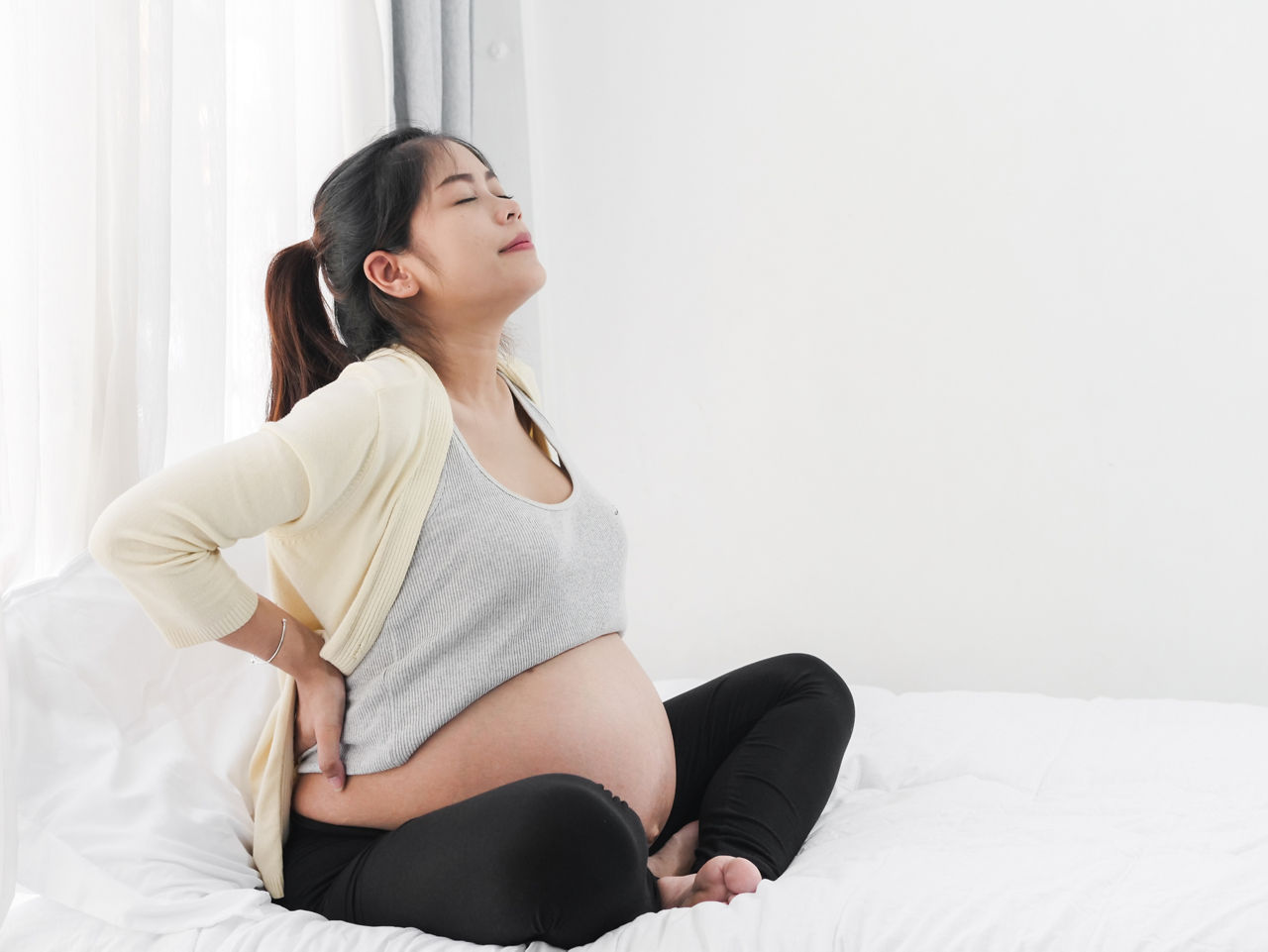Breastmilk is the best for babies. The World Health Organisation recommends exclusive breastfeeding for the first six months of life. Unnecessary introduction of bottle feeding or other food and drinks will have a negative impact on breastfeeding. After six months of age, infants should receive age-appropriate foods while breastfeeding continues for up to two years of age or beyond. Consult your doctor before deciding to use infant formula or if you have difficulty breastfeeding.
- Week 1
- Week 2
- Week 3
- Week 4
- Week 5
- Week 6
- Week 7
- Week 8
- Week 9
- Week 10
- Week 11
- Week 12
- Week 13
- Week 14
- Week 15
- Week 16
- Week 17
- Week 18
- Week 19
- Week 20
- Week 21
- Week 22
- Week 23
- Week 24
- Week 25
- Week 26
- Week 27
- Week 28
- Week 29
- Week 30
- Week 31
- Week 32
- Week 33
- Week 34
- Week 35
- Week 36
- Week 37
- Week 38
- Week 39
- Week 40
Week 37 of Your Pregnancy
At 37 weeks, you may experience signs of impending delivery, such as a sharp pain at the hip or a leaking water bag (Mummysg)! While awaiting the arrival of your newborn, keep up a balanced diet, and take sufficient calcium!
You must be busy reading up on the early signs of labour! Indeed, it can be hard to tell if those contractions are the real thing. By week 37, your baby is fully developed and considered full-term1. If labour starts at this stage, that’s good news, because your baby is now ready for the outside world2!
Weighing 2.9kg and measuring 34cm2, your baby is likely to be in a head-down position and ready for birth. As it moves lower into your abdomen, this will relieve the pressure on your ribs and you may finally feel more comfortable1 – phew!
You’re not looking forward to this, but your baby’s first poo will contain the waste that has built up throughout pregnancy! As for its natural defences, your baby will rely on antibodies and immune factors from your breast milk to keep infections at bay2.
Identifying Signs of Labour
How will you know if baby is on the way? The good news is, most labours will begin gently. The bad news is, labour can last for hours, or even days! Here are some early clues that may hint at baby’s arrival: (Mother and Baby)
- Water bag breaks – this can happen in one gush, or a slow trickle
- Backache – this means your baby is getting into position for birth
- Brown, pink or red discharge
- Leaking nipples
- Diarrhoea
- Walking differently – your pelvis widens to prepare for birth
- Intense contractions
If you are starting to experience these signs of labour, chances are, you’ll go into labour soon. As for how soon, it’s up to baby – every pregnancy is different!
Delivering Before Reaching the Hospital
Have you heard of stories of mummies giving birth in taxis in Singapore? Indeed, this may happen – especially for mummies who have delivered before! Just in case you mistake labour pains for abdominal cramps, or can’t get to the hospital on time, here are some tips for you and hubby: (Healthhub)
- Remain calm
- Call an ambulance (dial 995)
- Spread clean towels on a bed or sofa, and lie down
- Avoid pushing, but continue breathing deeply
- If your baby’s head can be seen, let the head emerge on its own
- Once the head is delivered and one shoulder is out, you may lift the head so that the other shoulder can be freed
- Keep the baby warm by wrapping it in a clean towel
- Do not cut or pull the umbilical cord
- Make yourself comfortable while help is on the way
Calcium for You; Calcium for Baby
Since your baby will be getting all of its nutrition from your breast milk, make sure you consume 1000mg of calcium a day! By the time of birth, you would be producing 750ml of milk daily, which contains around 280mg of calcium.
To get all the calcium you need, ensure that you’re eating a balanced, healthy diet! Here’s a guide to help you work out if you are getting enough calcium3.
| Food | Calcium Content |
|---|---|
| 200ml semi-skimmed milk | 230mg |
| 30g Cheddar cheese | 220mg |
| 150g plain low-fat yoghurt | 240mg |
| 200ml calcium-enriched soya milk | 180mg |
| 2 dried figs | 100mg |
| 6 almonds | 30mg |
| 90g cooked spinach | 160mg |
| 1 scoop dairy ice cream | 60mg |
| 1 tbsp sesame seeds | 80mg |
| 2 tinned sardines with edible bones | 270mg |
| 2 slices white bread | 127mg |
| 2 slices wholemeal bread | 76mg |
If you’re not getting enough calcium, talk to your doctor about taking a calcium supplement!
1. NHS UK. You and your baby at 37-40 weeks pregnant [Online]. 2015.
Available at: www.nhs.uk/conditions/pregnancy-and-baby/pages/pregnancy-weeks-37-38-39-40.aspx [Accessed September 2016]
2. Deans A. Your New Pregnancy Bible, The experts’ guide to pregnancy and early parenthood. 4th ed. London: Carroll & Brown Publishers Limited, 2013. p. 49.
3. Adapted from: Theobald, H. Dietary Calcium and Health. British Nutrition Foundation Nutrition Bulletin,2005; 30, 254–255.

Connect with our team of experts
We provide advice and support for you on your parenthood journey



